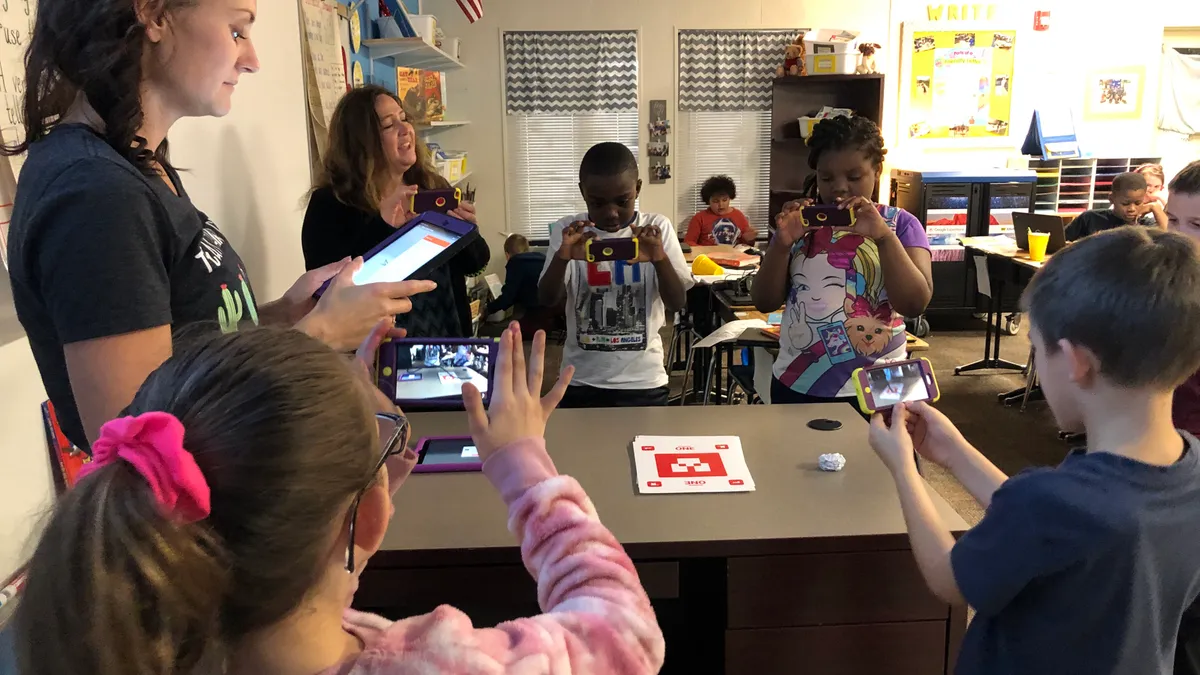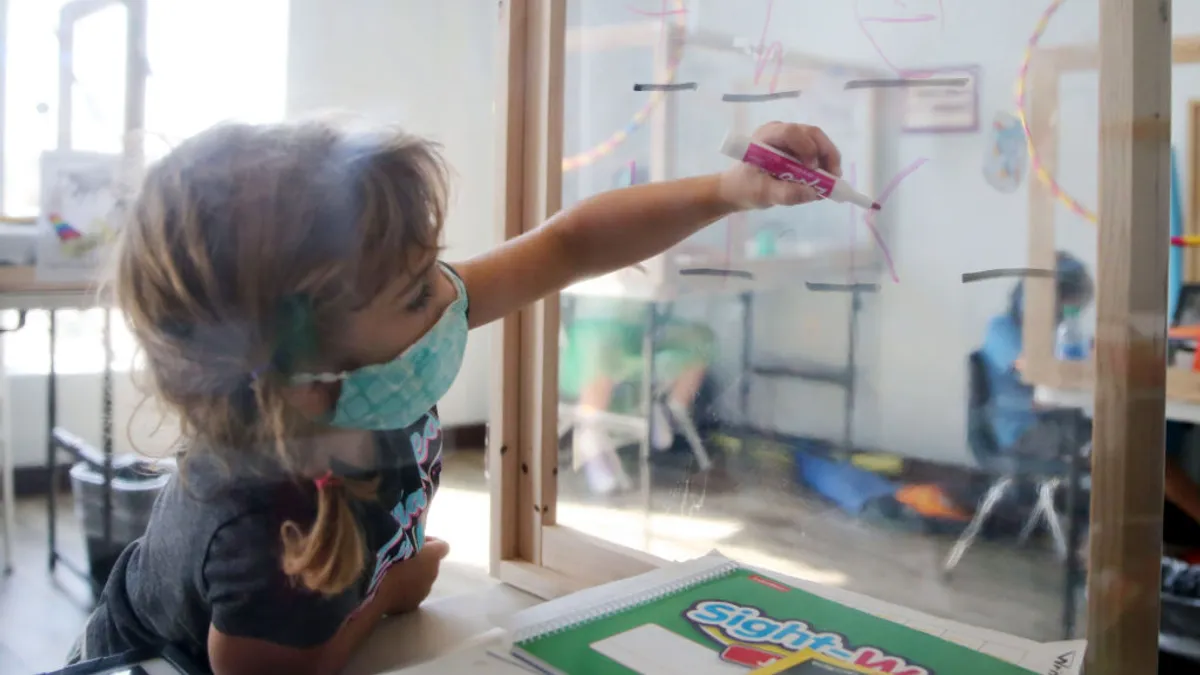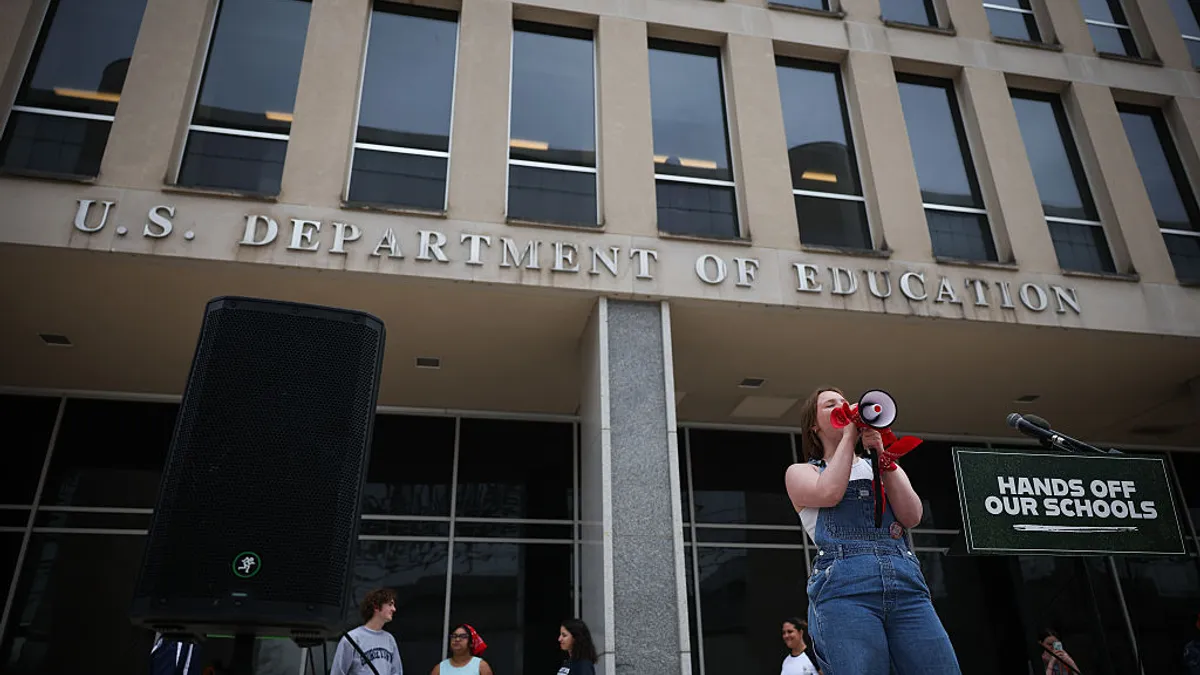It was a peculiar invitation. Patricia Swanz-Reiners, an elementary school counselor in Florida's Escambia County School District, was asked by the district in 2019 if she wanted to attend a National Science and Math Initiative conference in Texas that summer — and she didn't know why.
"I'm like, this is kind of weird, because why are you guys asking the counselor, the school counselor, to go to a science thing?" said Swanz-Reiners, who is currently a counselor at Reinhardt Holm Elementary School.
But while attending the conference, she felt completely aligned with the mission of NSMI, which is to expand inclusive opportunities for STEM education in schools. She also realized, as a counselor at a Title I school, she has a responsibility in making that happen.
Swanz-Reiners was specifically attracted to a session at the conference that focused on Counselors for Computing (C4C), an initiative of the National Center for Women & Information Technology (NCWIT). C4C trains school counselors in understanding the computing field and providing students exposure and experiences with computing activities.
Even though Reiner's school's young students were years away from choosing high school computer science courses or a computing career, Swanz-Reiners said, elementary students are risk-takers when it comes to learning. Even a little bit of computing exposure could build their confidence and interest, which may potentially lead toward a career or hobby in computing.
"My goal is to change the trajectory of my kids' life," she said.
Training counselors
NCWIT was founded in 2004 with a grant from the National Science Foundation. Its mission is to increase the meaningful and influential participation of girls and women in the field of computing.
President and CTO Terry Hogan says computing is a broad term that encompasses working with computers. The organization works with 1,500 member organizations around the country spanning from K-12, postsecondary and the workforce to provide resources for attracting and retaining people in computing careers.
School counselors can help students realize how their interests are aligned with computing and how computer science courses fit with college graduation requirements, according to NCWIT.
"We have learned that most professional school counselors have not been trained in what a computing degree is and what you can do with a computing degree and what a computing field might look like or a job might look like," she said.
From March 2020, when the pandemic began, through December 2021, C4C has trained 6,653 school counselors, which has a potential indirect impact of reaching 2.8 million students, both male and female, Hogan said.
There are several models for funding the counselors' training, including cost sharing between school districts and NCWIT. Counselors don't pay for their training, Hogan said.
NCWIT trainers work with a school counselor in the local area to help the trainers understand the particular intricacies of that school district so the training is relevant and customized. Counselors may receive professional development credits for the C4C training, she said.
The training includes an overview of societal bias and why girls and women aren't choosing computing classes in high school or technical programs to study in college, Hogan said.
Expanding student opportunities
According to a 2021 report from TheCode.org Advocacy Coalition, the Computer Science Teachers Association, and the Expanding Computing Education Pathways Alliance, the percentage of high schools offering computer science courses increased from 35% in 2018 to 51% in 2021.
Students who are English learners, have disabilities, or are economically disadvantaged, however, are still underrepresented in high school computer science enrollment. Black students are enrolling in computer science classes at rates proportional to their state population, the report said.
NCWIT trainers help counselors understand they and other adults are influencers in students' lives, and that computing and computational thinking are increasingly important life skills. The computing field, however, is underrepresented in various populations, such as women, African Americans, Hispanics, American Indians, people with disabilities and other groups, according to the National Science Foundation's Broadening Participation in Computing program.
"We talk about bias in a much more general term than just gender," Hogan said. "It's really about where does bias come and how does it manifest?"
The diversity of experiences and cultural and racial identities is important in computing, Hogan said, because those voices need to be heard when technology is created.
Classroom tools and experiences
When Swanz-Reiners, who has been a school counselor for 13 years, returned to Escambia County after attending the NSMI conference, she applied for and won funding from the Escambia County Public Schools Foundation Grants for Excellence to purchase Google Expeditions virtual and augmented reality kits, allowing students to take virtual field trips exploring Florida's history.
Additionally, those lessons were aligned with the state's science standards for writing, communicating and publishing activities using technology tools.
A year later she applied for another grant and won funding to purchase LEGO robotics. She's also won a State Farm Teacher Assist Grant to purchase equipment to support the virtual reality activities. Students are currently using LEGOs for coding.
All these tools and activities help students to not only use current technology but allow them to create their own tech experiences, she said. The expanded computing experiences in school means more students can participate, including those who may have no exposure to these activities elsewhere, Swanz-Reiners said.
The STEM-based activities, she said, go hand-in-hand with the American School Counselors Association standards for college, career and life-readiness skills for students, which include:
- Creative approaches to learning, tasks and problem-solving.
- The demonstration of self-discipline and control.
- Use of collaboration and cooperation skills.
Swanz-Reiners was nominated as 2020-21 Florida School Counselor of the Year and is a counselor consultant for C4C, training school counselors in various states about their role in the area of technology and equity.
"I really think our girls can change the world. I 100% think that's true, but we have to give them the tools to do it and encouragement," Swanz-Reiners said.
Mixing science with art
Adriana Lopez Cajigas had just moved to Texas from Puerto Rico as a high school sophomore when she decided science would not be her college or career path. In Puerto Rico, she was a top science student and had a passion for STEM classes. Also while there, she was introduced to NCWIT activities and won a NCWIT student award.
But in Texas, she said she struggled in her science classes because the testing techniques like multiple choice questions were unfamiliar to her. Lopez Cajigas continued to stay in touch with NCWIT advisors, who encouraged her to blend her passion for drawing with her interest in engineering and space. She began writing a comic book about how the planets interact with the solar system.
During a tour of the University of Houston when she was a senior in high school, Lopez Cajigas showed her comic book to the director of the U of Houston's Building Reliable Advances and Innovation in Neurotechnology (BRAIN) center, who asked her to write a comic book for the center using a grant from the National Science Foundation. The comic book aims to inform children about the neurotechnology projects at the BRAIN center.
She's now a junior at U of Houston, focusing on engineering. She is currently establishing a student mentor program for girls through the local NCWIT division, because she said NCWIT mentors and others played a large role in boosting her confidence to pursue science and technology activities.
"It doesn't matter what their goals are, they (girls) should deserve a chance, everyone should deserve a chance, to [access] STEM, just very well as I did," Lopez Cajigas said.






















